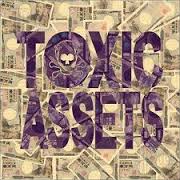 A toxic asset is a type of financial asset whose value has decreased to a great extent, and which doesn’t have an operating market, thereby not providing an opportunity to the asset owner to sell it at an appropriate price.
A toxic asset is a type of financial asset whose value has decreased to a great extent, and which doesn’t have an operating market, thereby not providing an opportunity to the asset owner to sell it at an appropriate price.
Since the assets are balanced against liabilities and most often leveraged, the fall in price would affect the owner adversely. A market for toxic assets that does not operate is called as “Frozen”.
The markets for several toxic assets froze in 2007 with the situation worsening in 2008. There were several reasons for the toxic asset markets to freeze. The asset value responded to the prevailing economic environment, and any fluctuations in the economic conditions made it challenging to evaluate the asset value.
Banks and financial institutions did not want to sell the assets at fewer prices because they had to decrease the stated assets to a large extent, thereby making them theoretically bankrupt.
During the financial crisis, the Non-Performing Loans (NPL) got converted into Liabilities. Toxic assets increased at an accelerated rate in comparison to the deposits.
Toxic assets can be dealt in the following manner:
Seller’s or Reverse Auction
A reverse or seller’s auction in which the financial firms would bid for the sale of toxic assets at rates that would be near held-to-maturity values. The offers would then be purchased by the treasury. Once the purchases are completed, banks would be in a position to value the toxic assets.
Additional Capital Infusion
Facilitating the infusion of capital into the affected financial firms would result in the enhancement of the bank’s existing capital. However, enhancing the bank’s capital does not mean an increase in the existing credit. It does not provide a solution to resolve toxic assets that are present in the balance sheets.
Mark-to-Market Accounting
Experts are recommending the termination of the mark-to-market accounting. This would restrict the issue of marking down the assets, decrease investor assurance and reduce existing capital. However, it could result in a speculative valuation.
Write Down
Stakeholders believe banks should write down assets and enumerate capital, at any cost. Banks must expel their toxic assets for any price.
Government Guarantees
Government intervention to guarantee against losses on their toxic assets would also assist. The result of a guarantee-type method consists of an immediate impact of a process that could be executed expeditiously.
Debt-to-Equity Conversions
It would be appropriate if the government establishes a required debt-to-equity transformation with or without removing the current equity holders.
The toxic assets create a detrimental selection issue and therefore the interbank asset market delivers inadequate liquidity to fund the investment. Toxic assets must be eliminated from the balance sheet of a bank to enhance the investor confidence in the banking system.
Read about Academy of Financial Trading Programmes. To give your feedback, visit AcademyFT Complaints.